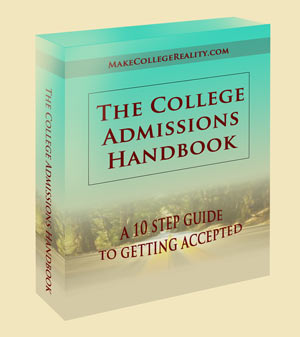 Who to ask. Think of teachers you have a good relationship with. Have you volunteered with any teachers? Been a teacher’s aide? Started a club under the supervision of a teacher? You may not have done any of these things, but the point is to not just think about what classes you’ve done well in. Just because you received an “A” in a class doesn’t mean that teacher will be able to write a good recommendation.
Who to ask. Think of teachers you have a good relationship with. Have you volunteered with any teachers? Been a teacher’s aide? Started a club under the supervision of a teacher? You may not have done any of these things, but the point is to not just think about what classes you’ve done well in. Just because you received an “A” in a class doesn’t mean that teacher will be able to write a good recommendation.
If you have an idea of what you want to study in college, try to get a recommendation from someone who teaches a related subject. Also, try to choose someone who you’ve known for a while. They will be able to tell give a better picture of you than a teacher who has only known you for one semester.
Make sure at least one recommendation is from a teacher, but you can ask someone that’s not a teacher too. You could ask a coach, a supervisor from an internship or job, or a school counselor.
What to give them. Don’t assume the person you’re asking will know everything about you. They’ll be able to write a better recommendation if they know about your other activities and how you’re doing in other classes.
When they agree to write a letter for you, give them a copy of essays you’ve written for your applications, a resume, and your transcript. Talk to them. Let them know where you’re applying and why you want to go.
Take a look at the instructions on your applications – they may need to use your school’s letterhead or sign the sealed side of the envelope.
How many kinds? One great question about recommendations is whether to ask for one general recommendation or one for each school. The simple answer is, it depends.
For example, if you're applying to four engineering schools, you can probably get away with one general recommendation as long as you double check the instructions for each school. However, if you're applying to a fine arts college and a liberal arts school, you might want to have a separate recommendation for each. This way, you can send one highlighting your artistic ability to the fine arts college and a more general one to send to the liberal arts school.
If you let the people you're asking for recommendations know which schools you're applying to, they can address the letter to the appropriate person even, if they are just writing one general recommendation. Always ask for extra generic copies (including a generic addressee) in case you decide to apply to a college last minute.
Give them time. Teachers will be very busy in the fall writing recommendations - especially if they teach mostly juniors. Give anyone you’d like to write a letter for you at least two weeks, if not a whole month, to get it done.
Thank them. Your teachers take time out of their schedule to help you out so make sure you send them a thank you note. When you get your acceptance letters, let them know what schools you got into and where you plan on going.
>>The right time to ask for college recommendations
Prepare
Apply
Before you start
Choosing a college
Recommendations
Essays
Paying for college
Succeed


